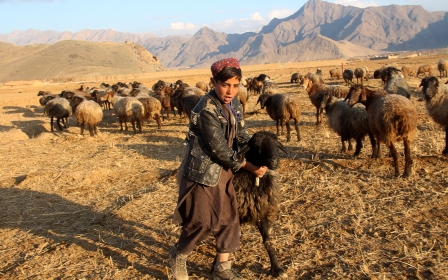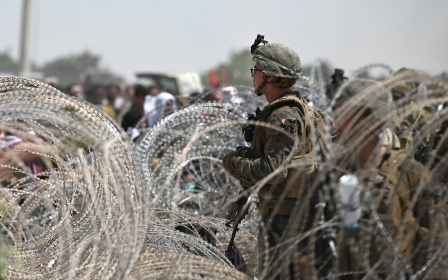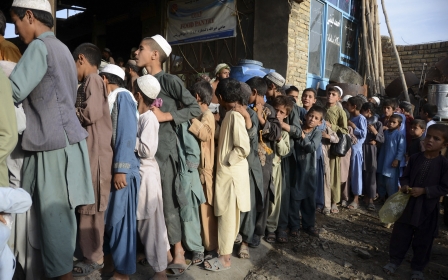US to 'redirect' $3.5bn of frozen reserves to Afghanistan
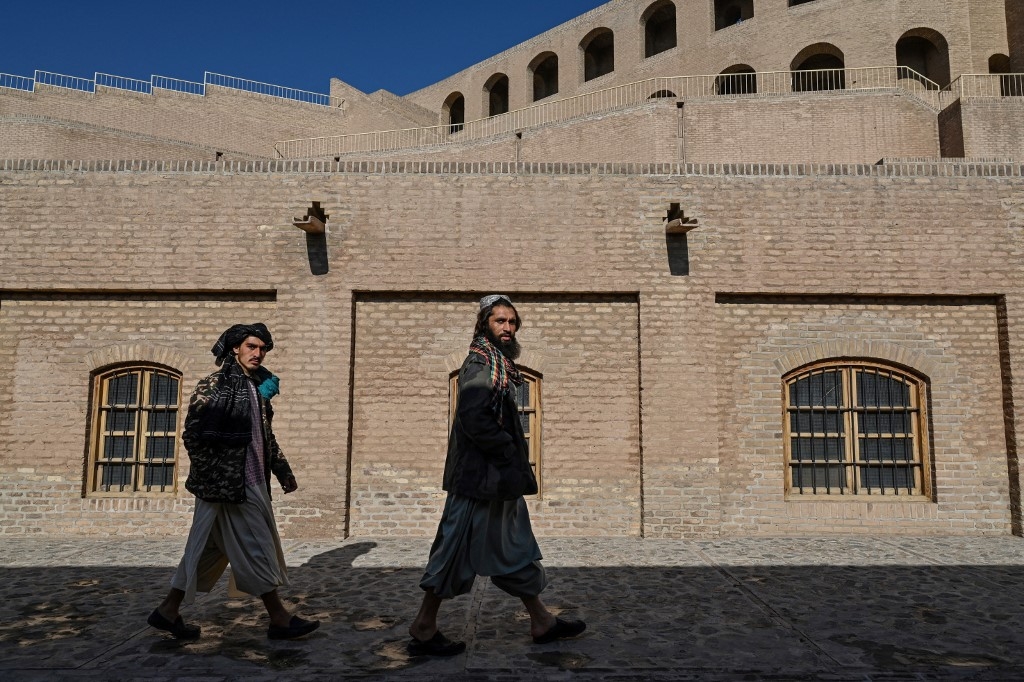
The US will be "redirecting" $3.5bn of Afghanistan's frozen assets to a new fund that will be used to stabilise the Afghan economy, the US Treasury office announced on Wednesday.
The "Afghan Fund" will be established to benefit the people of Afghanistan and will be untouched by the Taliban and other "malign actors", according to Washington. The fund will be run by Swiss government officials and Afghan economic experts and can be used to help the country pay for critical imports.
"The Afghan Fund will protect, preserve, and make targeted disbursements of that $3.5 billion to help provide greater stability to the Afghan economy," the US Treasury said. "The Taliban are not a part of the Afghan Fund, and robust safeguards have been put in place to prevent the funds from being used for illicit activity."
A Taliban official told TRT World that it rejects the US plan to redirect the money to a Swiss bank. The spokesperson did say they were open to a third-party monitoring system as the US government demanded.
“We don't agree with the transfer of money to the account indicated, but [we wish for it] to be transferred to Da Afghanistan Bank (DAB),” a Taliban official told TRT World.
New MEE newsletter: Jerusalem Dispatch
Sign up to get the latest insights and analysis on Israel-Palestine, alongside Turkey Unpacked and other MEE newsletters
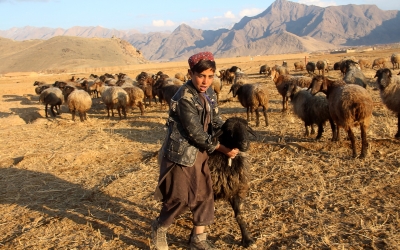
Afghanistan is in desperate need of cash. The country's GDP plummeted 20 percent following the Taliban takeover after the US withdrawal. Foreign aid, which accounted for 95 percent of the government's budget under the previous administration, has dried up. It is estimated that 95 percent of the population does not have enough to eat.
According to the World Bank, about 70 percent of Afghan households report they are unable to fully meet basic food or non-food needs.
"The people of Afghanistan face humanitarian and economic crises born of decades of conflict, severe drought, COVID-19, and endemic corruption," said Wendy Sherman, US deputy secretary of state.
"Today, the United States and its partners take an important, concrete step forward in ensuring that additional resources can be brought to bear to reduce suffering and improve economic stability for the people of Afghanistan while continuing to hold the Taliban accountable."
A controversial executive order had frozen the Afghan central bank's $7bn of assets held in the Federal Reserve Bank of New York after the Taliban swept to power following the chaotic US withdrawal from Afghanistan. The Taliban and US had been engaged in talks about releasing the funds.
The Biden administration was considering a plan to allow $3.5bn to flow into Afghanistan for humanitarian purposes and to support the central bank, based on assurances on how the money would be used.
But the revelation that al-Qaeda leader Ayman al-Zawahiri was living in Kabul derailed talks between the US and the Taliban on a compromise over the funds.
"We do not see recapitalisation of the Afghan central bank as a near-term option," Tom West, the State Department's special representative for Afghanistan, said at the time.
Earlier this week, a source told TRT World, who initially broke the story, that the US wanted "strict compliance with anti-money laundering and terrorist financing protocols in addition to a third-party supervision of the funds".
Middle East Eye delivers independent and unrivalled coverage and analysis of the Middle East, North Africa and beyond. To learn more about republishing this content and the associated fees, please fill out this form. More about MEE can be found here.


